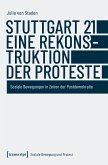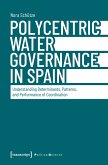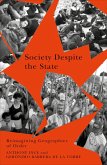Lessons learned from the powerful climate justice campaign in Aotearoa New Zealand
Stopping Oil dives into the story of how deep-sea oil exploration became politicized in Aotearoa New Zealand, how community groups mobilized against it, and the backlash that followed. It is also a story of activists exercising an ethic of care and responsibility, and how that solidarity was masked and silenced by the neoliberal state.
As Aotearoa New Zealand began to pursue deep-sea oil as part of its development agenda, a powerful climate justice campaign emerged, comprising a range of autonomous 'Oil Free' groups around the country, NGOs like Greenpeace, and iwi and hapu (Maori tribal groups). As their influence increased, the state employed different tactics to silence them, starting with media representations designed to delegitimize, followed by securitization and surveillance that controlled their activities, and finally targeted state-sanctioned violence and dehumanization.
By highlighting geographies of hope for radical progressive change, the authors focus on the many examples of the campaign where solidarity and political responsibility shone through the repression, leading us towards a brighter future for climate justice across the globe.
Stopping Oil dives into the story of how deep-sea oil exploration became politicized in Aotearoa New Zealand, how community groups mobilized against it, and the backlash that followed. It is also a story of activists exercising an ethic of care and responsibility, and how that solidarity was masked and silenced by the neoliberal state.
As Aotearoa New Zealand began to pursue deep-sea oil as part of its development agenda, a powerful climate justice campaign emerged, comprising a range of autonomous 'Oil Free' groups around the country, NGOs like Greenpeace, and iwi and hapu (Maori tribal groups). As their influence increased, the state employed different tactics to silence them, starting with media representations designed to delegitimize, followed by securitization and surveillance that controlled their activities, and finally targeted state-sanctioned violence and dehumanization.
By highlighting geographies of hope for radical progressive change, the authors focus on the many examples of the campaign where solidarity and political responsibility shone through the repression, leading us towards a brighter future for climate justice across the globe.
Dieser Download kann aus rechtlichen Gründen nur mit Rechnungsadresse in A, D ausgeliefert werden.









